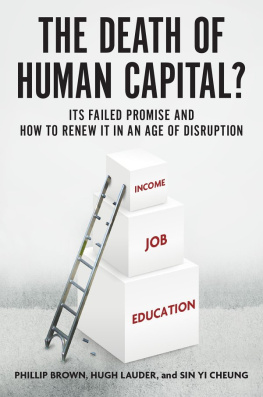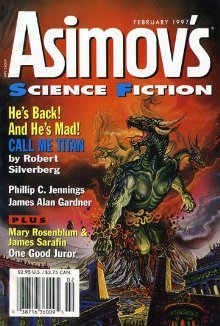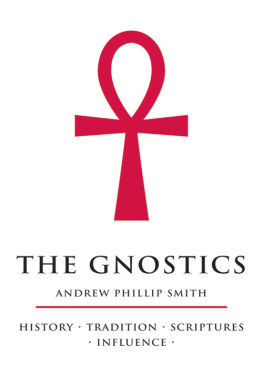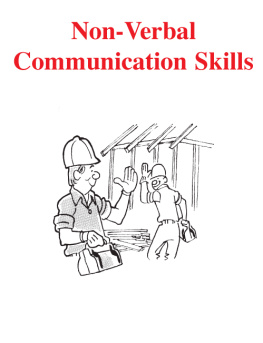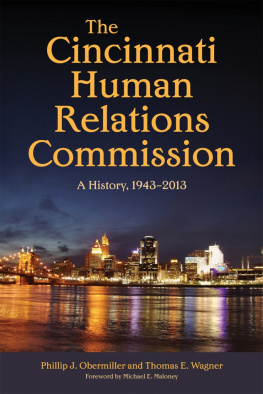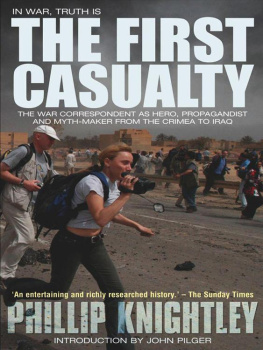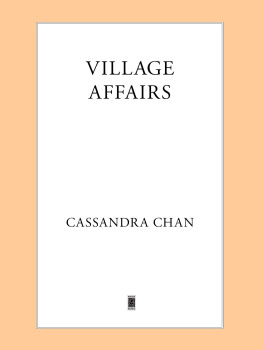Phillip Brown - The Death of Human Capital?
Here you can read online Phillip Brown - The Death of Human Capital? full text of the book (entire story) in english for free. Download pdf and epub, get meaning, cover and reviews about this ebook. year: 2020, publisher: Oxford University Press, genre: Politics. Description of the work, (preface) as well as reviews are available. Best literature library LitArk.com created for fans of good reading and offers a wide selection of genres:
Romance novel
Science fiction
Adventure
Detective
Science
History
Home and family
Prose
Art
Politics
Computer
Non-fiction
Religion
Business
Children
Humor
Choose a favorite category and find really read worthwhile books. Enjoy immersion in the world of imagination, feel the emotions of the characters or learn something new for yourself, make an fascinating discovery.
- Book:The Death of Human Capital?
- Author:
- Publisher:Oxford University Press
- Genre:
- Year:2020
- Rating:4 / 5
- Favourites:Add to favourites
- Your mark:
- 80
- 1
- 2
- 3
- 4
- 5
The Death of Human Capital?: summary, description and annotation
We offer to read an annotation, description, summary or preface (depends on what the author of the book "The Death of Human Capital?" wrote himself). If you haven't found the necessary information about the book — write in the comments, we will try to find it.
Phillip Brown: author's other books
Who wrote The Death of Human Capital?? Find out the surname, the name of the author of the book and a list of all author's works by series.
The Death of Human Capital? — read online for free the complete book (whole text) full work
Below is the text of the book, divided by pages. System saving the place of the last page read, allows you to conveniently read the book "The Death of Human Capital?" online for free, without having to search again every time where you left off. Put a bookmark, and you can go to the page where you finished reading at any time.
Font size:
Interval:
Bookmark:

Oxford University Press is a department of the University of Oxford. It furthers the Universitys objective of excellence in research, scholarship, and education by publishing worldwide. Oxford is a registered trade mark of Oxford University Press in the UK and certain other countries.
Published in the United States of America by Oxford University Press
198 Madison Avenue, New York, NY 10016, United States of America.
Oxford University Press 2020
All rights reserved. No part of this publication may be reproduced, stored in a retrieval system, or transmitted, in any form or by any means, without the prior permission in writing of Oxford University Press, or as expressly permitted by law, by license, or under terms agreed with the appropriate reproduction rights organization. Inquiries concerning reproduction outside the scope of the above should be sent to the Rights Department, Oxford University Press, at the address above.
You must not circulate this work in any other form and you must impose this same condition on any acquirer.
Library of Congress Cataloging-in-Publication Data
Names: Brown, Phillip, 1957 author. | Lauder, Hugh, 1948 author. |
Cheung, Sin Yi, author.
Title: The death of human capital? | its failed promise and how to renew it in an age of disruption
/ Phillip Brown, Hugh Lauder and Sin Yi Cheung.
Description: New York : Oxford University Press, 2020. |
Includes bibliographical references and index.
Identifiers: LCCN 2019055840 (print) | LCCN 2019055841 (ebook) |
ISBN 9780190644307 (hardback) | ISBN 9780190644314 (paperback) |
ISBN 9780190644321 | ISBN 9780190644338 (epub)
Subjects: LCSH: Human capital. | Labor market. | Competition.
Classification: LCC HD4904.7 .B74 2020 (print) | LCC HD4904.7 (ebook) |
DDC 331dc23
LC record available at https://lccn.loc.gov/2019055840
LC ebook record available at https://lccn.loc.gov/2019055841
We would like to thank James Cook, from OUP, who has shared a vision of our intellectual aspirations for over ten years. We first talked about this book with him after The Global Auction (2011), and he has continued to offer invaluable support. Our thinking has also been informed by friends and colleagues across the globe, including Tien-Hui Chiang, Greg J. Duncan, Brian Easton, Soon Joo Gog, Craig Holmes, Ewart Keep, Antonia Kupfer, Henry (Hank) Levin, Caroline Lloyd, Ken Mayhew, Richard J. Murnane, Chris Martin, Nick Pearce, Robert B. Schwartz, Ivan Snook, Heike Solga, Manuel Souto-Otero, Johnny Sung, and Gerbrand Tholen.
Such views sat comfortably with the idea of the American Dream, whereby individual rewards should reflect differences in ability, skills, and economic contribution. It was an open invitation for all those with ability and desire to succeedregardless of social background, gender, or raceby investing in their human capital. An invitation that governments around the world have accepted: schools, colleges, and universities have been transformed into the drivers of capital accumulation in a new form of exchange where learning equals earning. It is estimated that close to a third of Americans are involved in education as students, teachers, college professors, or trainers. Globally, trillions of dollars are spent by governments, companies, families, and students in the hope that these investments will deliver economic growth, higher productivity, or a larger paycheck.
But as more people are encouraged to get a bachelors degree, the competition for credentials and the scramble for decent jobs have intensified.
Young people in many countries have protested in the streets or on campuses against economic austerity and broken promises as national governments struggle to fund increasing student numbers and provide decent job opportunities. A report on intergenerational trends found that pessimism about the living standards of younger generations is
Paradoxically, orthodox human capital theory has become a victim of its own success in getting individuals, families, and governments to believe that investments in education and training remain the route to better jobs, higher incomes, and economic growth. The massive growth in college diplomas and degrees that national governments believed were needed to meet the rising demand for high skills has instead resulted in credential hyperinflation.
It may seem surprising to talk about the death of human capital at a time when record numbers of people are in higher education and employers continue to complain about a shortage of skilled workers. This book does not argue that skilled labor is becoming less important or that we are approaching the end of work in a world in which robots will take over. But we are arguing that the orthodox theory of human capital, which has guided public and economic policy, is no longer fit for purpose in the twenty-first century.
Our argument is that a new theory of human capital is required to address todays challenges presented by global competition, new technologies, and economic inequalities. have a much wider understanding of contributions to society than is assumed by orthodox economics.
The new human capital is based on the idea of job scarcity as distinct from labor scarcity. Despite various attempts to update orthodox theory in light of the growing evidence calling into question the efficacy of educational investment to deliver economic growth and higher wages, many economists They take this view because orthodox theory assumes that the more skilled a worker becomes, the greater their individual productivity and the more they will be paid.
David Autor, an MIT economist, writes, The primary system of income distribution in market economies is rooted in labor scarcity; citizens possess value, as people will be paid what they are worth, reflected in differences in individual productivity.
Our alternative theory is premised on job scarcity due to a capacity problem at the heart of market economies. We reject the view that new technologies invariably increase the demand for higher-level skills, or that the supply of more educated workers will energize employers to invest in new to win a competitive advantage.
Redefining human capital in the context of job scarcity leads to the study of how people seek to capitalize on their knowledge and skills in fundamentally different economic and social contexts. It rejects the idea of humans as capital because people cant be reduced to what they earn from learning or from the stock of their knowledge. It recognizes differences in how people understand, utilize, and seek to make a life from their knowledge and skills. It also recognizes differences in social and historical contexts, rejecting claims to a universal relationship between learning and earning.
Human societies are the foundations for capital accumulation (and translation) that have never been flattened in the shape of perfect competition or stable preferences. We cannot deduce from first principles the processes by which people capitalize and translate their resources into productive contributions. This requires a contextual understanding of how processes of capitalization and translation are turned into human capital.
This highlights the translation work required of individuals, employers, and nations typically ignored by orthodox theorists. When
We do not underestimate the scale of our task as orthodox human capital theory is so deeply ingrained in our societies and the way people have come to think about education, work, contribution, and income inequalities. There is a major challenge in showing how the economy does not start and finish with what commands a wage or that education is little more than an economic investment.
Font size:
Interval:
Bookmark:
Similar books «The Death of Human Capital?»
Look at similar books to The Death of Human Capital?. We have selected literature similar in name and meaning in the hope of providing readers with more options to find new, interesting, not yet read works.
Discussion, reviews of the book The Death of Human Capital? and just readers' own opinions. Leave your comments, write what you think about the work, its meaning or the main characters. Specify what exactly you liked and what you didn't like, and why you think so.

